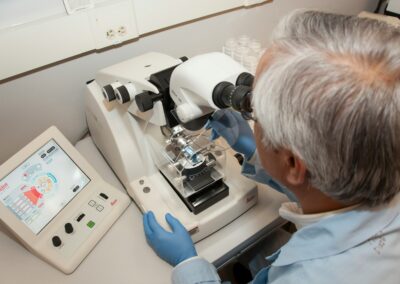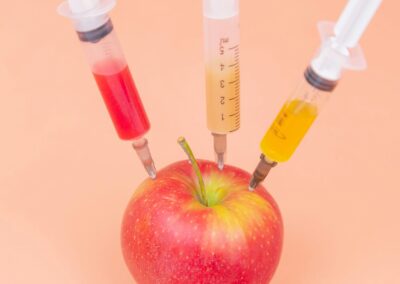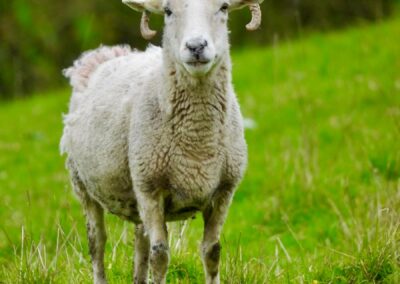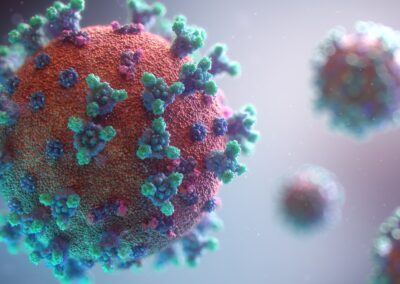Advancing Livestock Health through Genetic Engineering
Enhancing Livestock Health with Genetic Engineering
The focus on genetic engineering for disease-resistant livestock represents a pivotal shift in agricultural biotechnology aimed at improving animal health and reducing dependency on antibiotics. Genetic engineering involves manipulating the DNA of organisms to introduce or enhance traits, offering a powerful tool for developing livestock that is more resistant to diseases. This technology can be applied to create livestock with enhanced immune systems, enabling them to better withstand pathogens and reduce the incidence of infectious diseases. By integrating genetic modifications into breeding programs, farmers can achieve healthier herds with lower mortality rates and improved overall productivity.
In regions like Saudi Arabia and the UAE, where livestock management is crucial for both economic and food security reasons, the application of genetic engineering is particularly valuable. The arid climates and specific environmental challenges in these countries necessitate robust and resilient livestock breeds. Genetic engineering can address these needs by producing animals that are not only resistant to common diseases but also adapted to harsh environmental conditions. This approach aligns with the broader goals of enhancing agricultural sustainability and food security in the region, while also supporting the growth of advanced biotechnologies.
The benefits of developing disease-resistant livestock extend beyond health improvements. By reducing the need for antibiotics, genetic engineering contributes to combating antibiotic resistance, a growing concern in veterinary and human medicine. Fewer antibiotics used means less risk of resistance development, which is critical for maintaining effective treatments for both animals and humans. The adoption of genetically engineered disease-resistant breeds is thus a significant step towards more sustainable and responsible animal husbandry practices.
Reducing Antibiotic Use through Genetic Modifications
The reduction of antibiotic use through genetic engineering is a crucial benefit that addresses several pressing issues in modern agriculture. Antibiotics have long been used to prevent and treat diseases in livestock; however, their overuse has led to the emergence of antibiotic-resistant bacteria, posing risks to both animal and human health. By developing disease-resistant livestock through genetic modifications, it is possible to minimize the reliance on antibiotics, thereby reducing the risk of resistance and promoting healthier ecosystems.
Genetic engineering can achieve this by enhancing the innate immune responses of livestock, enabling them to naturally resist infections without the need for prophylactic or therapeutic antibiotics. For example, introducing genes that confer resistance to specific pathogens can make livestock less susceptible to diseases, reducing the frequency and severity of outbreaks. This approach not only improves animal welfare but also supports the sustainability of agricultural practices by minimizing the environmental impact associated with antibiotic use.
In Saudi Arabia and the UAE, where the management of livestock health is a key component of agricultural and food security strategies, the implementation of genetically engineered disease-resistant breeds aligns with national goals of promoting sustainable farming practices. Both countries are investing in biotechnology to address challenges related to animal health and agricultural efficiency. The successful integration of genetic engineering in livestock management can enhance the resilience of farming systems and contribute to the overall goals of achieving food security and sustainability.
Future Prospects and Innovations in Livestock Genetics
Looking ahead, the future of genetic engineering in developing disease-resistant livestock holds immense potential for innovation and advancement. As biotechnology continues to evolve, new techniques and approaches will emerge, further enhancing the capabilities of genetic engineering. Advances in gene editing technologies, such as CRISPR-Cas9, will enable more precise and efficient modifications, allowing for the development of livestock with tailored disease resistance profiles.
In Saudi Arabia and the UAE, the focus on biotechnology and genetic engineering is expected to drive significant progress in livestock health and agricultural practices. Both countries are well-positioned to leverage these technologies to address local and regional challenges, such as disease outbreaks and environmental stresses. The integration of genetic engineering with other emerging technologies, such as data analytics and artificial intelligence, will also play a crucial role in optimizing livestock management and improving overall agricultural productivity.
The continued investment in research and development, coupled with the adoption of innovative genetic engineering solutions, will pave the way for a new era in livestock health management. By focusing on disease-resistant breeds and sustainable practices, the agricultural sector can achieve improved animal welfare, reduced reliance on antibiotics, and enhanced food security. The advancements in genetic engineering promise to transform livestock management and contribute to the broader goals of sustainability and innovation in the agricultural industry.
#GeneticEngineering, #DiseaseResistantLivestock, #AnimalHealth, #Biotechnology, #SustainableAgriculture, #AntibioticReduction, #LivestockManagement, #AgriculturalInnovation































